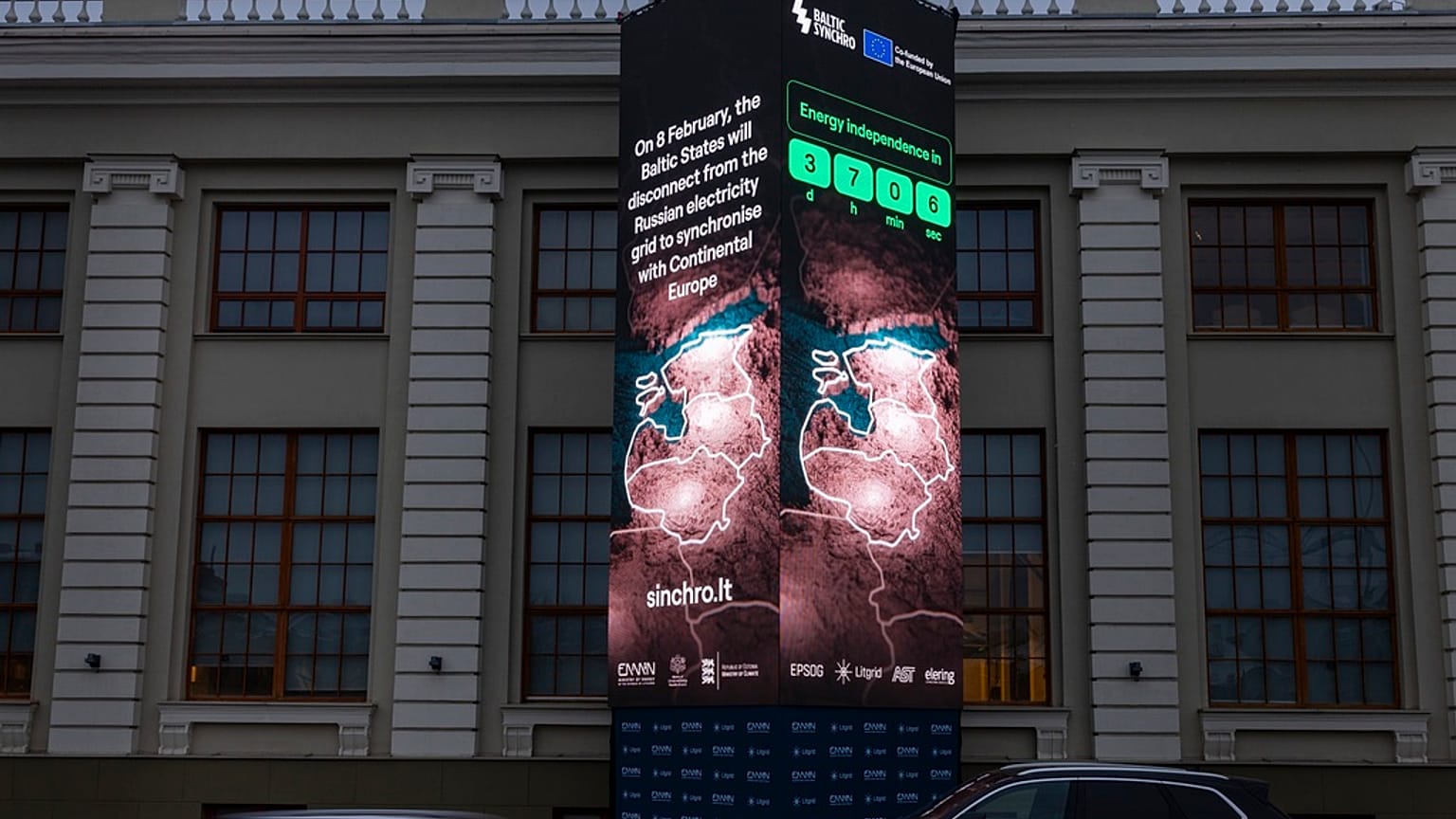Lithuania, Latvia and Estonia all disconnected from the Soviet-era grid on Saturday morning and will merge with the European energy system on Sunday.
Nearly three and a half decades after leaving the Soviet Union, the Baltic countries of Estonia, Latvia and Lithuania have ended electricity-grid connections to neighbouring Russia and Belarus — and lean in more with their European Union allies.
The severing of electricity ties to oil- and gas-rich Russia is steeped in geopolitical and symbolic significance.
Work towards it sped up after Russian President Vladimir Putin ordered his troops to invade Ukraine three years ago, battering Moscow’s EU relations.
“This is physical disconnection from the last remaining element of our reliance on the Russian and Belorussian energy system,” said Lithuanian president Gitanas Nausėda.
EU chief Ursula von der Leyen and other dignitaries are expected for a ceremony on Sunday as a specially-made 9-meter tall clock in downtown Vilnius counts down the final seconds of the Baltic states’ electricity ties to Russia.
Sixteen power lines that used to connect three Baltic states with Russia and Belarus were dismantled over the years as a new grid linking them with the rest of the EU was created, including underwater cables in the Baltic Sea.
On Saturday, all remaining transmission lines connecting the Baltic countries with Russia, Belarus, and Russia’s Kaliningrad — a Russian exclave wedged between EU members Poland and Lithuania and the sea — will be switched off one by one.
Then, for 24 hours, the Baltic Power System will operate solo in a so-called “island operation mode.”
The next day, the power system is set to merge with the Continental European and Nordic grids through several links with Finland, Sweden and Poland.
The three Baltic countries, which together have a 1,633-kilometre-long border with Russia and Belarus, officially informed Moscow and Minsk of the disconnection plan in July.
Despite the advance notice, the Baltic nations are still on watch for a possible response from their former Soviet partners.
Some in the region were taking precautionary measures. Estonia's public broadcaster ERR has reported surging sales of generators.















